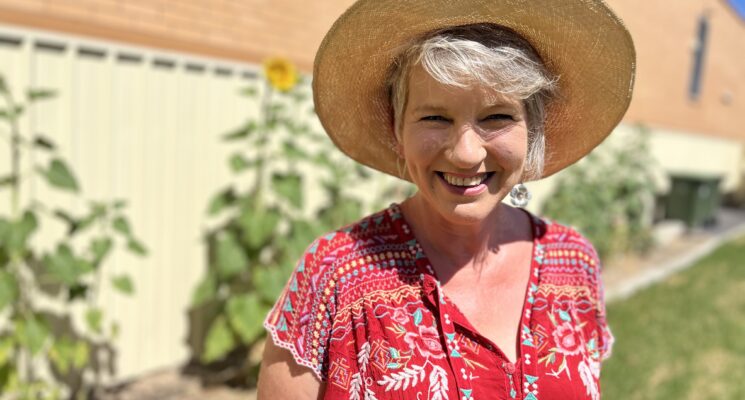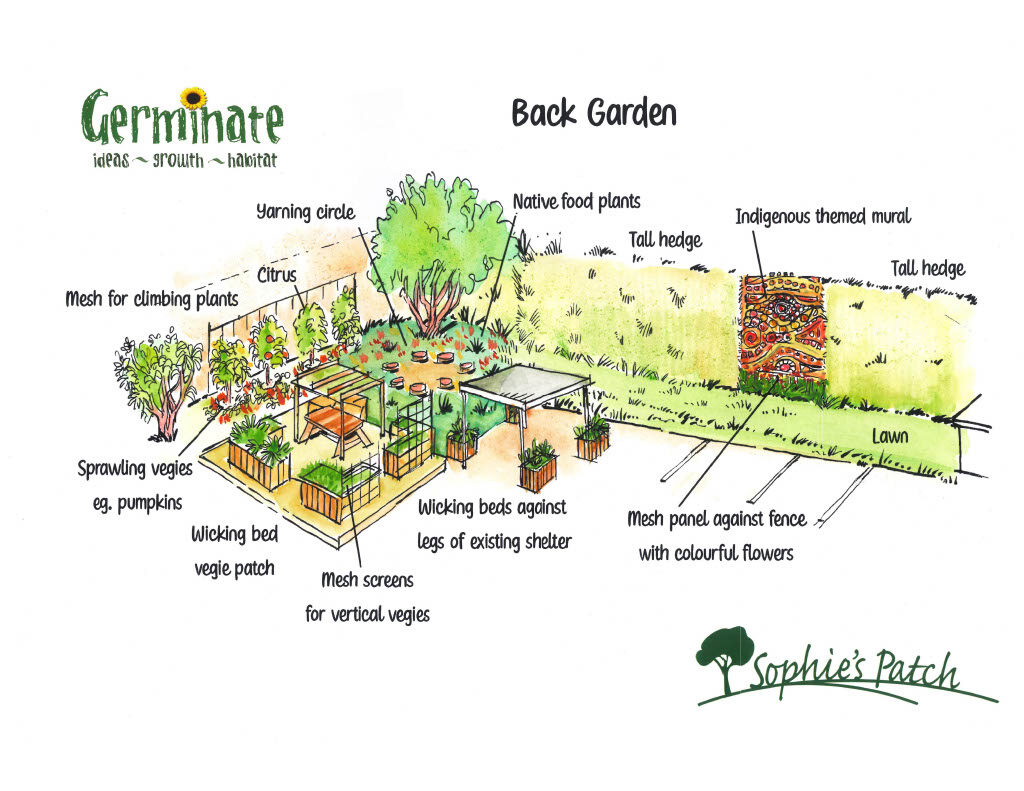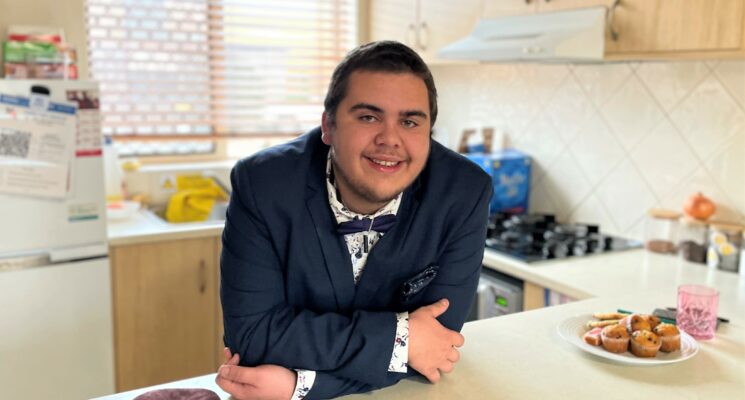
AnglicareSA and Believe Housing Australia are partnering with acclaimed South Australian gardening expert Sophie Thomson, Green Adelaide, and collaborating with University of Adelaide researchers on a greening project to support its Post Care Pathways (PCP) program.
Post Care Pathways is an award-winning housing first initiative developed by AnglicareSA to support young people who have had a lived care experience between the ages of 18 and 25.
The aim of the greening project is to provide a cooler, greener, and more liveable outdoor space for those living at the community housing apartments in Adelaide’s inner south-west.
Sophie said the enhanced green space would have a positive impact on the health and wellbeing of the young residents.
“I am passionate about the importance of gardening and green spaces to support our mental and physical health and wellbeing,” Sophie said.
“And while this is at the core of this project, it also has the potential to touch on many other aspects of gardening that are extremely relevant right now.”
With Green Adelaide and Believe Housing Australia providing funding for the project, Sophie will work alongside AnglicareSA and community partners to provide avenues for connection and community building while also tapping into key outcomes including:
- Food security – Teaching valuable life skills such as the ability to grow food, and then how to cook using produce grown in the garden.
- Mitigating the Urban Heat Island Effect – urban greening to create cooler, greener, more liveable gardens.
- Habitat creation – for urban wildlife such as birds, bees, and butterflies.
- Sense of place, pride, ownership and empowerment for young people residing at the apartments.
- Creating community and spaces for connection with friends, family, and supports.
- Positively impact the health and wellbeing of residents.
- Connection to future career and life pathways (e.g. gardening and growing food).
“Ultimately this project will create an amazing garden space around the units which will not only enhance aesthetics, but it will also create a sense of place and belonging for the residents and help to connect them to nature and gardening,” Sophie said.

The University of Adelaide has also come on board with researchers to examine the impacts of the unique project.
Dr Ehsan Sharifi from the School of Architecture and Civil Engineering will examine the impacts of the project on mitigating heat through monitoring outdoor and surface temperatures pre- and post-implementation of the greening strategies, while Dr Mark Kohler from the School of Psychology will look at the project’s psychological and wellbeing effects on the young people living at the site.
AnglicareSA Executive General Manager, Community Services, Nancy Penna said working alongside Sophie and the University of Adelaide on the greening project was an great opportunity for the PCP program and the young people it supports.
“We are looking forward to reshaping and bringing a new sense of place and ownership for the young people who are a part of this program,” Ms Penna said.
“Sophie’s expertise, experience, and commitment to this project is an opportunity for us to not only create an environment that is greener and more welcoming, but it also creates opportunities for our young people to access potential mentoring partnerships and develop their skills and knowledge.”
Believe Housing Australia Executive General Manager, Stacey Northover, said BHA was looking forward to working with the Post Care Pathways program on the Greening Project.
“This will create a wonderful space for the young people and encourage positive connection with nature and community,” Ms Northover said. “Believe Housing is passionate about this collaboration with the AnglicareSA Post Care Pathways program.
“As a Tier 1 Community Housing Provider we are able to support this program by providing housing opportunities and tenancy management that concentrates on providing guidance for young people to maintain their housing successfully.
“Safe and secure housing options are an important step in enabling young people the opportunity to establish themselves and attain training, education, and employment.”
Post Care Pathways is a self-funded program which has helped more than 38 young people since it began in January 2021.
Our program provides young people at risk of homelessness with immediate access to housing that is safe, affordable, appropriate.
It assists young care leavers with subsidised rent, supports them to maintain education and employment, provides social inclusion, while establishing independent living skills to ensure that they are given every opportunity as practically possible to move beyond their care experience and live a happy, healthy, and thriving future.
